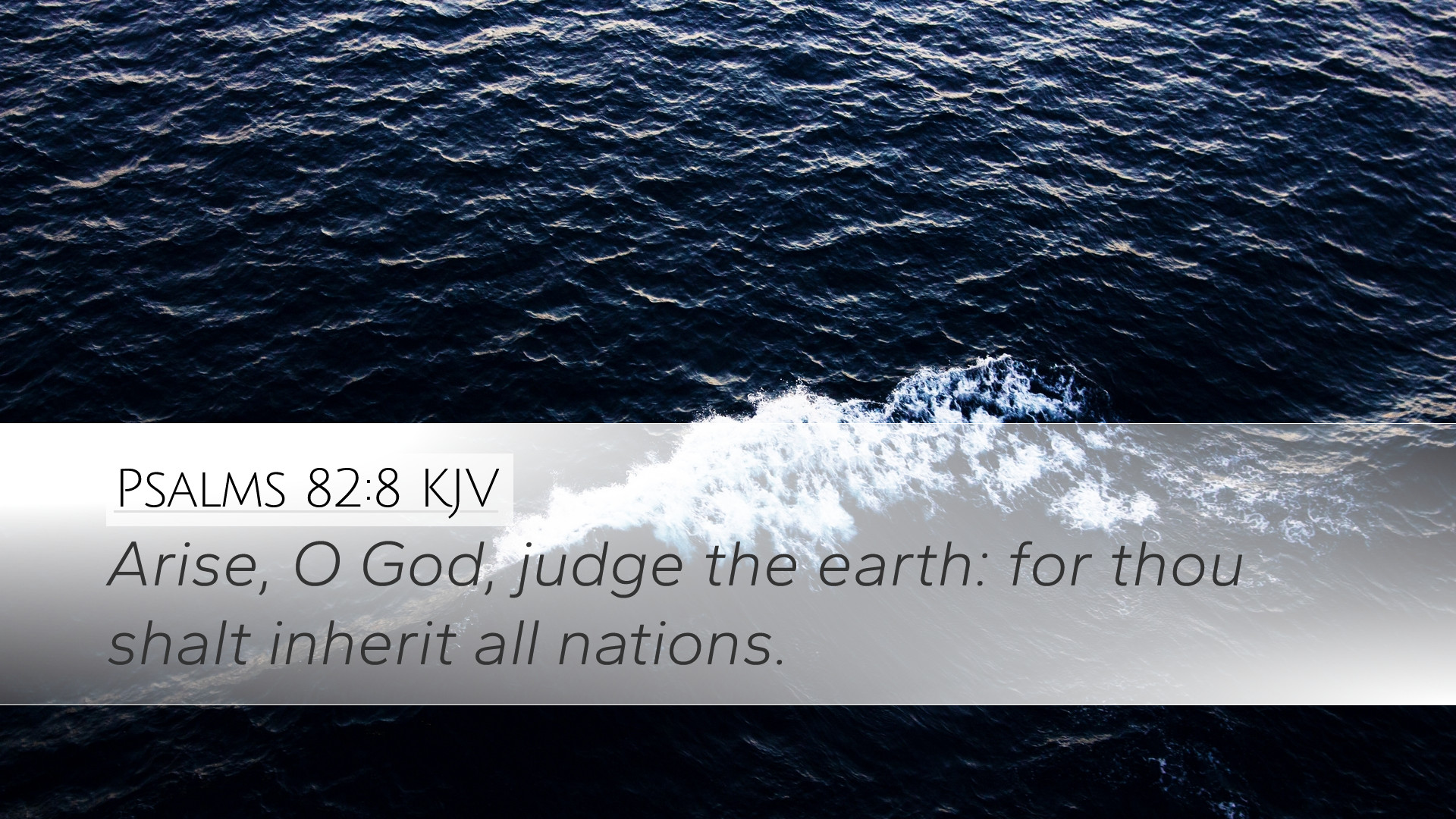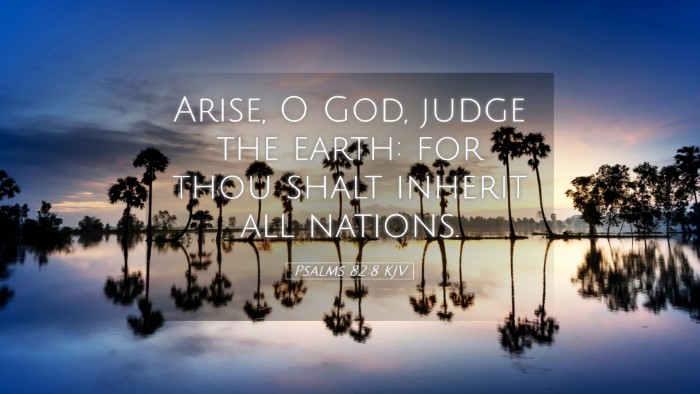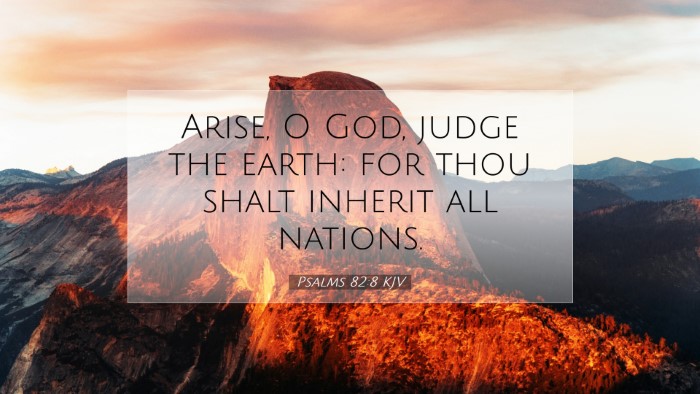Psalms 82:8 Commentary
Verse: "Arise, O God, judge the earth: for thou shalt inherit all nations."
Contextual Overview
This verse concludes a psalm that calls upon God for justice and divine intervention. Historically attributed to Asaph, this psalm highlights God's sovereignty and the responsibility of earthly judges. It serves as a reminder of God's ultimate authority over all nations.
Insights from Public Domain Commentaries
Matthew Henry's Commentary
Matthew Henry emphasizes the passionate plea within this verse. He remarks that the call for God to arise underlines the urgency of divine judgment in the face of corrupt earthly authorities.
- Divine Intercession: Henry notes that the verse is a supplication for God to act decisively against injustices perpetrated by humans.
- Judgment and Righteousness: He suggests that “judge the earth” speaks to God’s role not just as a ruler, but as the ultimate arbiter of justice.
- Inherit All Nations: The psalmist's declaration of God's inheritance of all nations symbolizes His sovereignty over all creation and His ultimate claim over humanity.
Albert Barnes' Notes
Albert Barnes examines the implications of divine judgment in this verse. He points out that the appeal for God to arise signifies a desire for His active involvement in human affairs.
- The Role of Judges: Barnes discusses how God’s judgment reflects not only on national affairs but also on the individual responsibilities of earthly rulers.
- Call to Accountability: The verse serves as a reminder that all powers, both earthly and heavenly, are accountable to God for their governance.
- Universality of God’s Rule: He underscores that God’s inheritance of all nations reflects the inclusivity of His grace and the inevitability of His justice.
Adam Clarke's Commentary
Adam Clarke provides a deeper theological interpretation of the request for God to arise. He suggests that this call encapsulates a profound yearning for divine order amidst chaos.
- Expectation of Divine Presence: Clarke posits that the call for God to arise presumes a period where His presence seems absent, reflecting the struggles faced by the faithful.
- The Significance of Judgment: He elucidates that divine judgment is not only retributive but also restorative, aimed towards the establishment of righteousness.
- Cosmic Authority: Clarke emphasizes that God’s authority extends beyond mere politics; it encompasses the entire cosmos, urging believers to trust in His sovereignty.
Theological Implications
Analyzing Psalms 82:8 through various commentaries reveals significant theological concepts:
- God’s Sovereignty: The verse affirms God’s ultimate power to judge and redeem; it ushers hope amidst societal injustices.
- Human Agency in Governance: It reflects on the expectations placed on human judges and leaders. They are called to reflect God’s justice, serving as instruments of His will.
- Cultural Relevance: In a contemporary context, the verse's cry for divine justice resonates in societies grappling with moral dilemmas and ethical governance.
Application for Pastors and Theologians
For pastors and theologians, Psalms 82:8 serves as a potent reminder of the church's role in advocating for justice and truth in society. Here are some practical applications:
- Encouragement in Prayer: Encourage congregations to fervently pray for God's intervention in leadership and decision-making processes.
- Teach on Divine Justice: Use this passage to educate congregations about the nature of divine justice and the implications for human conduct.
- Social Engagement: The church is called to be a voice for the voiceless, inspired by the psalmist's call for divine judgment.
Conclusion
Psalms 82:8 stands as a vital text that echoes the desire for divine justice and reaffirmation of God's overarching authority. As scholars, pastors, and theologians reflect upon this verse, the insights derived from the commentaries compel their collective responsibility to champion justice in their spiritual and communal spheres.


